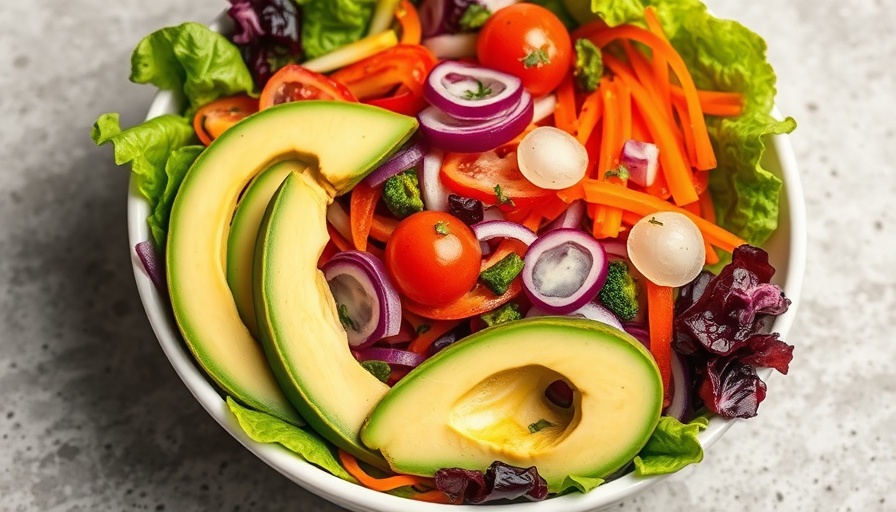
The Role of Diet in Combatting Metastatic Cancer
Cancer continues to pose significant challenges to health worldwide, but evidence is emerging that dietary choices can significantly impact outcomes, particularly for breast cancer patients. Notably, women with metastatic breast cancer may benefit from incorporating a variety of vegetables, especially cruciferous ones, in their diets. Research highlights that foods like broccoli can play a crucial role in downregulating genes responsible for cancer metastasis, giving hope to those affected by this grave illness.
Understanding CD36 and Its Impact on Cancer Progression
One key player in the spread of cancer cells is the CD36 fat receptor, which becomes upregulated by saturated fat intake. Studies indicate that a lower-fat diet can lead to improved breast cancer survival rates, as cutting fat consumption helps to dampen the effects of CD36. In research by the Women’s Intervention Nutrition Study, lower fat diets were shown to enhance survival when strict adherence was maintained. However, it’s essential to ensure that any dietary adjustments are truly followed; discrepancies can yield misleading results about the true effectiveness of specific dietary protocols.
The Power of Cruciferous Vegetables for Health
Scientific investigations suggest that cruciferous vegetables like broccoli may reduce the expression of the CD36 receptor by up to 35%. This mechanism is pivotal because lower CD36 levels may correlate with reduced metastasis in cancer patients. In fact, those with bladder cancer who enjoyed broccoli reported longer survival rates compared to those with negligible intake. Cruciferous vegetables appear not only to reduce cancer risk but also contribute directly to better outcomes for those already battling the disease.
Correlation Between Diet and Cancer Survival
The benefits extend beyond broccoli, as dietary patterns rich in plant-based foods, particularly cruciferous vegetables, are consistently associated with lower cancer recurrence and improved survival rates. For instance, ovarian cancer patients consuming more cruciferous vegetables often outlive those consuming high amounts of meat and dairy products, suggesting dietary adjustments might play a crucial role in recovery and longevity. The composition of meat and dairy—exhibiting potential risks due to sugars, hormones, and saturated fats—might directly impact estrogen levels and promote cancer progression.
Future Trends: Nutritional Science and Cancer Care
As research continues, the relationship between diet and cancer recovery will likely uncover more actionable insights for patients navigating their treatment. With growing evidence, the importance of a longevity-oriented diet is becoming clearer. Diets such as the Mediterranean diet and Blue Zone diet emphasize whole foods and plant-based nutrition, potentially offering protective benefits against developing chronic diseases, including cancer.
The Hope of Anti-Aging Foods for Longevity
Beyond fighting cancer, the intersection of diet and anti-aging is another promising area of exploration. A focus on healthy, longevity-promoting foods can improve the quality of life. By adopting principles from various diets known for their longevity benefits, individuals may unlock the potential to age gracefully, supported by nutritional choices that encourage cellular rejuvenation and overall well-being.
In conclusion, integrating more plant-based foods, particularly cruciferous vegetables, into your diet could hold immense benefits for cancer survivors and health-conscious individuals alike. By prioritizing these foods, you may support your body's resilience against disease and promote longevity.
Call to Action: Explore how you can enhance your diet with healthy, anti-aging foods. Consider trying out new recipes rich in cruciferous vegetables and other plant-based ingredients!
 Add Row
Add Row  Add
Add 




 Add Row
Add Row  Add
Add 


Write A Comment